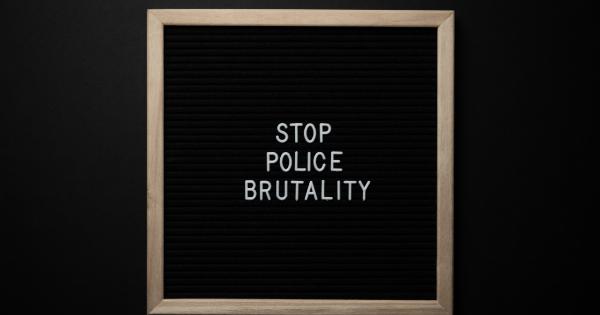It is often said that “sticks and stones may break my bones, but words will never hurt me.” However, the reality is quite different.
Hurtful words have the power to inflict deep emotional wounds that can be just as damaging, if not more so, as physical actions. In fact, verbal abuse can leave lasting scars that can take years to heal and can impact an individual’s self-esteem, relationships, and overall well-being.
The Power of Words
Words have immense power. They can inspire, motivate, and uplift, but they can also demean, belittle, and wound. When spoken with malice or intent to harm, words can cut through a person’s soul, leaving them feeling diminished and broken.
Unlike physical wounds, which may heal with time, emotional wounds caused by hurtful words can persist for years.
Words have the power to shape our perceptions of ourselves and others. Negative words can chip away at a person’s self-worth and self-confidence, leading to feelings of shame, guilt, and worthlessness.
When someone constantly hears hurtful remarks or derogatory comments, it can instill a belief that they are unworthy or unlovable. This can have a profound impact on their mental health and overall quality of life.
The Emotional Toll of Hurtful Words
The emotional toll of hurtful words should never be underestimated. Verbal abuse can lead to a variety of emotional and psychological issues, including anxiety, depression, post-traumatic stress disorder (PTSD), and even suicidal thoughts.
The constant barrage of negativity can create a toxic environment, leaving the victim feeling trapped and powerless.
Furthermore, hurtful words can erode trust and intimacy in relationships. Whether it is in a romantic partnership, at work, or within a family, verbal abuse can damage the strongest bonds.
The emotional scars caused by hurtful words may make it difficult for the victim to trust others, express their emotions, or form healthy connections with others.
The Power of Language
Language is a powerful tool that can be used to uplift and empower or to demean and degrade. It is crucial to recognize the impact our words can have on others and use language responsibly.
Engaging in mindful communication can help prevent the perpetuation of hurtful words and foster a culture of compassion, understanding, and respect.
By being aware of the power of our words, we can choose to use language in a way that is uplifting and affirming. Encouraging words have the capacity to inspire greatness in others, boost their self-esteem, and fuel their personal growth.
Simple acts of kindness, such as offering a compliment or expressing gratitude, can have a profound impact on someone’s day.
The Lasting Effects of Hurtful Words
It is important to recognize that the effects of hurtful words can extend far beyond the initial moment of impact. Unlike physical bruises or scars, emotional wounds may not be visible to the naked eye, but they can be just as debilitating.
The pain of hurtful words can echo in a person’s mind for years, affecting their daily life and overall happiness.
For instance, a child who constantly hears derogatory remarks from their parents may grow up with a distorted sense of self and struggle with low self-esteem. This can impact their academic performance, career choices, and relationships.
Similarly, individuals who have endured verbal abuse from a romantic partner may find it challenging to trust and form healthy connections in future relationships.
Breaking the Cycle
To break the cycle of hurtful words, it is essential to promote a culture of kindness, empathy, and respect. This starts with self-awareness and introspection.
By recognizing our own tendencies to use hurtful language, we can take steps to change our behavior and become more mindful of the impact our words have on others.
Education and awareness are also vital in breaking the cycle. Teaching children and young adults about the importance of kind and respectful communication can help create a generation that values empathy and compassion.
Additionally, providing resources and support for individuals who have experienced verbal abuse can aid in their healing process and help them regain their self-worth.
The Healing Power of Words
While words have the power to hurt, they also possess the power to heal. Kind and supportive words can offer solace, encouragement, and hope to those who have been wounded by hurtful language.
It is essential to use this power for good and be mindful of how our words might impact others.
Actively practicing empathy and understanding can go a long way in creating a more compassionate society. Listening without judgment, validating others’ emotions, and offering words of comfort can help individuals navigate their healing journey.
By using language to build others up rather than tear them down, we can create an environment in which hurtful words hold no power.
Conclusion
Hurtful words can be just as harmful as physical actions, leaving lasting emotional scars that impact an individual’s mental health, self-esteem, and relationships.
The power of language should never be underestimated, and it is crucial to use our words responsibly. By practicing empathy, compassion, and respect when communicating with others, we can create a society that values and uplifts one another.































